#nerve conduction velocity tests
Text
Why Do Doctors Recommend An NCV Test
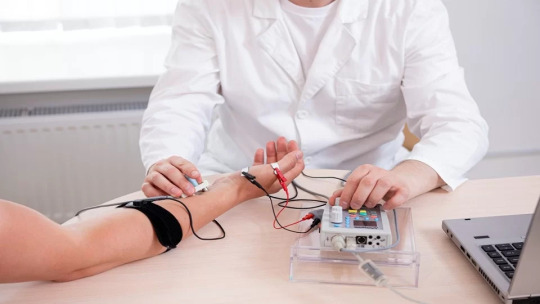
Doctors recommend nerve conduction studies or NCV Tests for those who develop the symptoms like numbness in fingers, tingling in arms or legs, or experiencing weakness in arms and legs.
NCV test at home is conducted along with an EMG which points out the difference between a nerve and a muscle disorder. Moreover, Nerve Conduction Velocity determines any problem affecting the nerve, whereas an EMG detects the working of the muscle in response to the stimulus of the nerves.
0 notes
Text
0 notes
Text
Fine, I'll be evil to my boy. Just this once. Because you asked.
For @silver-goggles-guild's
You've been chosen to write an X-Men movie, but the evil studio people need you to incapacitate Quicksilver at some point. How do you do it?
(Content warning for symtoms, I guess!)
Quicksilver poisoning, because that would be hilarious.
Not sure about the delivery method. Fumes sound easy, but it seems too imprecise (Would he inhale enough? Would others get exposed as well?) and I guess wouldn't last long enough (seeing how fast he'd be able to recover), unless he kept getting dosed. The easiest way would probably be to hide it in food, because Peter eats all the time. Of course the mercury would be coated in something with varying thickness, so it would be released gradually, thus work longer.
I assume it would slow him down to normal-people speed (at least that's what "slowed sensory and motor nerve conduction velocities" sounds like it would translate to in a speedster) and other desired symptoms are: Lack of coordination, slurred speech, deterioration of fine motor skills, difficulty walking, numbness in the hands and feet, loss of peripheral vision, muscle weakness, memory impairment, anxiety, emotional lability, performance deficits in tests of cognitive function.
Some detailed whump of Peter suffering from these symptoms, trying the save himself (would be so difficult with these symptoms), and then someone (preferably the Dadneto) helping him recover (because of course he'd fully recover - I'm only half evil!) would be sooo interesting to read.
Speaking of that guy: Mercury isn't very magnetic, so Magneto wouldn't be able to do anything. I'd isolate Peter anyway, so he can't call anyone else for help.
Once it's to late to barf the poison out, I'd have the villain gloat about Peter not being able to handle the stuff with which he shares a name, kinda like the Kryptonian can't handle Kryptonite, muahahaha! Though I'd also have them apologize, tell Peter that it's nothing personal, he'll get better, but for now he's just really in the way of villain's plans.
13 notes
·
View notes
Text
Elevating Neurological Care: NCS/EMG Diagnostic Services at World Diabetes Centre

World Diabetes Centre is committed to providing comprehensive healthcare solutions to individuals living with diabetes, including the management of neurological complications. We are pleased to introduce NCS/EMG diagnostic services, a vital addition to our healthcare offerings aimed at assessing nerve and muscle function in diabetic patients. In this article, we explore the significance of NCS/EMG diagnostic services at World Diabetes Centre and how they contribute to improving patient care and outcomes.
Understanding NCS/EMG Diagnostic Services: Nerve Conduction Studies (NCS) and Electromyography (EMG) are specialized tests used to evaluate the function of nerves and muscles in the body. NCS measures the speed and strength of electrical signals along peripheral nerves, while EMG assesses the electrical activity of muscles at rest and during contraction. These tests provide valuable information about nerve and muscle function, aiding in the diagnosis and management of neurological conditions, including those associated with diabetes.
The Role of NCS/EMG at World Diabetes Centre:
Early Detection of Neuropathy: Diabetic neuropathy is a common complication of diabetes characterized by damage to the nerves, leading to symptoms such as numbness, tingling, and pain in the extremities. NCS/EMG diagnostic services at World Diabetes Centre facilitate the early detection of diabetic neuropathy, allowing for timely intervention and preventive measures to minimize the risk of complications.
Comprehensive Neurological Evaluation: NCS/EMG testing provides a comprehensive assessment of nerve and muscle function, complementing other neurological evaluations and diagnostic tests. By performing NCS/EMG assessments, our healthcare providers gain valuable insights into the nature and extent of neurological dysfunction in diabetic patients, guiding treatment planning and management strategies.
Differential Diagnosis: NCS/EMG testing aids in the differential diagnosis of neurological conditions in diabetic patients, helping to distinguish between peripheral neuropathies, radiculopathies, myopathies, and other neuromuscular disorders. Accurate diagnosis is essential for appropriate treatment selection and optimizing patient outcomes.
Monitoring Disease Progression: For diabetic patients with established neuropathy or neuromuscular disorders, NCS/EMG testing allows for the monitoring of disease progression over time. By tracking changes in nerve conduction velocities, muscle response patterns, and other electromyographic parameters, healthcare providers can assess the effectiveness of treatment interventions and adjust management strategies as needed.
Multidisciplinary Collaboration: NCS/EMG diagnostic services foster multidisciplinary collaboration among healthcare providers at World Diabetes Centre. Neurologists, endocrinologists, physiatrists, and other specialists work together to coordinate care, address comorbidities, and optimize treatment approaches for diabetic patients with neurological complications.
Conclusion: NCS/EMG diagnostic services at World Diabetes Centre represent a significant advancement in neurological care for diabetic patients. By providing comprehensive assessments of nerve and muscle function, these services enable early detection, accurate diagnosis, and tailored management of neurological complications associated with diabetes. Through a multidisciplinary approach and a focus on patient-centered care, World Diabetes Centre aims to enhance the quality of life and well-being of individuals living with diabetes by addressing their unique neurological needs.
Address- Opp Octroi Post, Hambran Road, Ludhiana-141004, Punjab
Call - (+91) 709 830 0000
0 notes
Text
Dr. Amit Shah: Your Expert Neurologist in Borivali
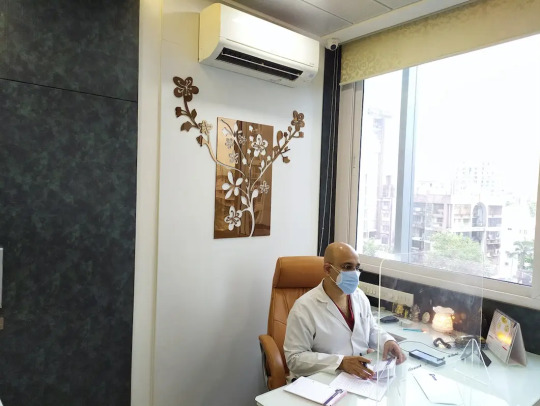
Are you in search of top-notch neurological care in Borivali, Mumbai? Look no further than Dr. Amit Shah's Neurology Clinic in Borivali West. Dr. Amit Shah is a renowned neurologist dedicated to providing comprehensive care for various neurological conditions. Let's delve into what makes Dr. Amit Shah and his clinic stand out in the realm of neurology.
Unveiling Dr. Amit Shah Neurology Clinic in Borivali
Located conveniently on S.V Road in Borivali West, Dr. Amit Shah's clinic is a beacon of advanced neurology services. Equipped with state-of-the-art neurodiagnostic facilities like EEG, EMG / NCS, SSEP, VEP, FNC, BAER, and more, the clinic ensures precise diagnosis and effective treatment for various neurological disorders.
Services Offered by Dr. Amit Shah
Dr. Amit Shah specializes in treating a spectrum of neurological conditions, including but not limited to:
Headaches: Whether it's migraines, cluster headaches, or tension headaches, Dr. Amit Shah can help alleviate your discomfort and improve your quality of life.
Seizures and Epilepsy: Managing epilepsy and seizure disorders is crucial for preventing brain damage, and Dr. Amit Shah offers expert care and medication solutions.
Stroke: Immediate intervention by a neurologist like Dr. Amit Shah is vital in minimizing brain damage during a stroke.
Dementia: Addressing memory loss and cognitive issues associated with dementia, Dr. Amit Shah provides tailored treatment to manage symptoms effectively.
Parkinson's Disease: With expertise in treating Parkinson's disease symptoms, Dr. Amit Shah offers personalized care to enhance patients' quality of life.
How to Reach Dr. Amit Shah Neurology Clinic
Finding your way to Dr. Amit Shah's clinic is easy. Situated above the Tirumala showroom on SV Road, Borivali West, the clinic is accessible from the station or WE highway, near the East-West bridge close to Kora Kendra.
Timing: 09:00 AM - 12:00 PM (Monday to Saturday)
Contact No: 98195 61456, 93213 66625
Neurodiagnostic Tests Offered at Dr. Amit Shah's Clinic
Dr. Amit Shah's clinic in Borivali West is equipped to perform a range of neurodiagnostic tests, including:
NCV: Nerve Conduction Velocity measurement
EEG: Electroencephalogram for brain wave analysis
EMG: Electromyography to assess muscle activity
Evoked Potentials: Monitoring brain activity in response to sensory stimuli
Ultrasound Examinations: Evaluating blood vessels and brain health
When to Consult Dr. Amit Shah
If you experience any of the following symptoms, it's time to schedule an appointment with Dr. Amit Shah:
Changes in behavior
Memory issues or confusion
Balance and coordination problems
Numbness, weakness, or movement difficulties
Recurrent severe headaches
Speech difficulties
Tremors or uncontrollable movements
Vision changes
Gait or posture alterations
Abnormal brain or spine imaging
Don't ignore subtle neurological symptoms; early intervention can significantly affect your health and well-being.
Dr. Amit Shah Neurology Clinic in Borivali is your go-to destination for expert neurological care. With a focus on precise diagnosis, personalized treatment plans, and compassionate care, Dr. Amit Shah ensures that your neurological health is in good hands. Book your appointment today and take the first step toward optimal neurological well-being!
#neurologist#neurologist in borivali#neurologist in goregaon#dr. amit shah#neurologist in kandivali#best neurologist in mumbai#neurologist in mumbai#neurologist in malad#neurologist in andheri#neurologist in vasai
0 notes
Text
Concierge Medicine and Complementary Therapies in Fairfield New Jersey
Our neurological evaluation provides invaluable information to our chiropractor and physical therapist, enabling them to individualize each patient’s treatment. The neurologist also assesses and monitors the patient’s progress and the effectiveness of treatment, working closely with our other providers to ensure you receiving the best possible care for your condition. We use electromyelographic (EMG) testing to discern the integrity and function of the spinal nerves. Our nerve conduction velocity (NCV) test allows us to diagnose nerve damage or dysfunction. http://www.continuumatmecca.com/services-benefits/complementary-therapies
0 notes
Text
NCV Testing Centres in Indirapuram Ghaziabad |NCV Test in Indirapuram Ghaziabad
Dr. Kapil Kumar Singhal, a highly accomplished medical professional, boasts over 15 years of invaluable experience in the field of neurology. Currently lending his expertise to Fortis Hospital Noida, Dr. Singhal has become a stalwart in providing exceptional neurological care. His commitment to advancing diagnostic capabilities is evident through his association with NCV Testing Centres in Indirapuram Ghaziabad, where he plays a pivotal role in enhancing the region's healthcare infrastructure. Dr. Singhal's specialization in NCV testing, particularly in Indirapuram Ghaziabad, underscores his dedication to precision and thoroughness in diagnosing nerve-related disorders. Patients under his care benefit not only from his extensive experience but also from his commitment to staying at the forefront of medical advancements. Dr. Kapil Kumar Singhal's contributions extend beyond clinical practice, as he actively contributes to the improvement of neurology services, making him a respected figure in the medical community and a beacon of hope for individuals seeking top-notch neurological care in the region.
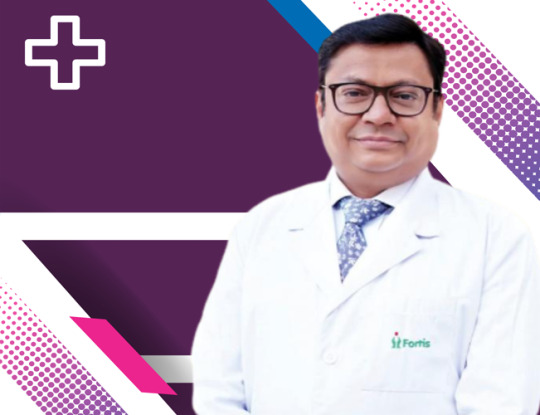
0 notes
Text
Definition and pathogenesis – The acute immune-mediated polyneuropathies are classified under the eponym Guillain-Barré syndrome (GBS). The acute polyneuropathy of GBS is triggered when an immune response to an antecedent event cross-reacts with shared epitopes on peripheral nerve (molecular mimicry).
●Antecedent triggers – Most patients report an antecedent infection or other event in the four weeks prior to GBS. Upper respiratory tract infection and gastroenteritis are the most common infections, and Campylobacter jejuni gastroenteritis is the most commonly identified precipitant of GBS.
●Epidemiology – GBS occurs worldwide with an overall incidence of 1 to 2 cases per 100,000 per year. The incidence increases by approximately 20 percent with every 10-year increase in age.
●Clinical features – The typical clinical features of GBS include progressive and symmetric muscle weakness with absent or depressed deep tendon reflexes. Patients may also have sensory symptoms and dysautonomia.
•GBS symptoms typically progress over a period of two weeks. If the nadir is reached within 24 hours or after 4 weeks of symptom onset, alternative diagnoses must be considered.
•GBS is a heterogeneous syndrome with variant forms that may be identified by distinguishing clinical and pathologic features. Acute inflammatory demyelinating polyneuropathy is the most common form of GBS. Common variant forms include acute motor axonal neuropathy, acute motor and sensory axonal neuropathy, Miller Fisher syndrome, and Bickerstaff brainstem encephalitis.
●Diagnostic evaluation – The initial diagnosis of GBS is based on the clinical features consistent with the syndrome: acute onset of progressive, mostly symmetric muscle weakness, and reduced or absent deep tendon reflexes. The clinical diagnosis of GBS is confirmed if cerebrospinal fluid (CSF) and electrodiagnostic studies show typical abnormalities.
•CSF findings in patients with GBS is an albuminocytologic dissociation consisting of an elevated CSF protein (typically 45 to 200 mg/dL [0.45 to 2.0 g/L]) with a normal white blood cell count (typically <5 cells/mm3 but may be elevated up to 50 cells/mm3).
•Electrodiagnostic studies may show prolonged or absent F waves and absent H reflexes, increased distal latencies and conduction blocks with temporal dispersion, significant slowing or absent response on nerve conduction velocities, and reduced recruitment or denervation on needle electromyography of weak muscles.
•Laboratory testing is performed for all patients to screen other common causes of acute weakness. We reserve ganglioside autoantibody testing for patients with symptoms suggestive of a variant form of GBS. Neuroimaging is typically used for patients with atypical symptoms to exclude alternative etiologies.
●Differential diagnosis – The differential diagnosis of GBS includes chronic inflammatory demyelinating polyneuropathy, other acute polyneuropathies, and diseases of the spinal cord, neuromuscular junction, and muscle. Patients with features atypical for GBS should be evaluated for alternative sources to symptoms.
1 note
·
View note
Text
Brachial Plexus Injury: Diagnosis and Treatment
The brachial plexus is a network of nerves originating from the spinal cord in the neck and extending down the arm. It plays a crucial role in the movement and sensation of the upper limbs. Unfortunately, brachial plexus injuries can occur due to trauma, accidents, sports injuries, or birth-related complications. These injuries can have a significant impact on an individual's quality of life. In this article, we will explore the diagnosis and treatment options available for brachial plexus injuries.
Diagnosis:
Diagnosing a brachial plexus injury typically involves a comprehensive evaluation by a healthcare professional. The initial assessment includes a detailed medical history review, understanding the circumstances leading to the injury, and a physical examination. The physical examination may involve testing the range of motion, muscle strength, and sensory perception in the affected limb.
To further evaluate the extent and location of the injury, various diagnostic tests may be conducted. These tests can include electromyography (EMG), nerve conduction studies, magnetic resonance imaging (MRI), and computed tomography (CT) scans. EMG and nerve conduction studies help assess the electrical activity and nerve conduction velocity, respectively, aiding in identifying the severity and location of the injury. MRI and CT scans provide detailed images of the brachial plexus, enabling the healthcare professional to determine the extent and specific site of nerve damage.
Treatment:
The treatment of brachial plexus injuries depends on several factors, including the severity of the injury, the location of the damage, and the individual's overall health. Here are some common treatment options:
Observation and Rehabilitation:
In mild cases where there is no complete nerve rupture, a period of observation and physical therapy may be recommended. Physical therapy can help improve range of motion, muscle strength, and function. Rehabilitation exercises focus on restoring movement and stimulating nerve regeneration.
Surgical Intervention:
Surgery may be necessary for more severe cases or when conservative treatments fail to produce significant improvement. The surgical approach depends on the specific type and location of the injury. Nerve grafting involves replacing damaged nerve segments with grafts from other nerves, while nerve transfers involve transferring functional nerves to replace the damaged ones. These procedures aim to restore nerve function and improve motor control and sensation.
Supportive Measures:
In addition to medical interventions, supportive measures can help manage the symptoms and improve the individual's quality of life. This can include pain management techniques, occupational therapy to enhance daily activities, and psychological support to cope with the emotional impact of the injury.
Recovery and Rehabilitation:
Recovery from a brachial plexus injury can be a gradual and lengthy process. Rehabilitation plays a vital role in regaining functionality and maximizing recovery potential. The rehabilitation program may include a combination of physical therapy, occupational therapy, and specialized exercises tailored to the individual's specific needs. These interventions aim to promote nerve regeneration, increase muscle strength, restore range of motion, and enhance overall functionality.
Conclusion:
Brachial plexus injuries can be debilitating, but with appropriate diagnosis and treatment, significant improvements in function and quality of life can be achieved. Timely medical intervention, accurate diagnosis, and a comprehensive rehabilitation program are key elements in the management of these injuries. If you suspect a brachial plexus injury, seek medical attention promptly to explore the most suitable treatment options available to you. With proper care and support, individuals affected by brachial plexus injuries can lead fulfilling lives and regain function in their upper limbs.
0 notes
Text
Chiropractic Treatment for Lower Back Pain
What is chiropractic treatment?
Chiropractic is a profession of health that uses controlled force on a spine joint. A specialist (chiropractor), through hand-on manipulations, aligns the musculoskeletal system (especially the spinal column) to improve physical function and spine motion. chiropractic treatment can reduce pain, inflammation, and muscle tension.
Chiropractic treatment for lower back pain
The leading cause of disability is low backache. Around 85% of the population will experience back pain at some time in their life. The cause of back pain and the appropriate treatment are often unclear.
Back pain is caused by a variety of ChiroPraise factors, such as sports injuries, muscle strains and accidents. It can also be due to sciatica or repetitive misuse. The chiropractor will use spinal manipulative in order to relieve lower back pain. This is done by applying a controlled, hands-on force to the abnormal vertebrae. This can help reduce nerve irritation and restore range of motion to the back.

If the pain is severe, a chiropractor may recommend spinal mobilization. This involves stretching and moving the muscles and joints, as well as a low-velocity manipulation to increase range of motion.
What is chiropractic treatment for lower back pain?
A chiropractor will perform a physical exam, obtain medical history and use diagnostic imaging in order to determine the cause of lower back pain and an appropriate treatment plan. The individual's pain level, diagnosis and activity tolerance are all important factors in determining the best chiropractic treatment plan.
During a Chiropractic session the patient is placed in a specific position (e.g. face down, sideways, on their stomach, etc.). On a padded desk. A chiropractor uses his hands to apply force in order to move an affected joint. Many people hear cracking or popping sounds when dissolved gas is released from the synovial liquid of the joint.
In most cases, one or two manual adjustments are made. The goal of the treatment is to relieve pain and restore function. The positive long-term outcomes are increased by maintaining spinal manipulation after the initial therapy.
Benefits and Risks
Chiropractic care improves range of motion and reduces lower back pain. It can also help with physical function. The treatment is also less painful and more effective, resulting in a reduction of pain medication.
First appointment
The chiropractor will typically conduct a physical examination and gather a detailed medical history during the first visit. The physical examination involves evaluating posture, joint flexibility, muscle strength and tone, as well as joint mobility. Tests such as x rays can be performed to determine if there are any fractures or medical conditions before treatment begins.
It is important that the person seeking treatment be ready to give details of their current and previous health conditions, as well as current medications and supplements. Wear loose, comfortable clothing that allows for easy movement.
Manipulation
Chiropractic treatment is primarily based on spinal or joint manipulation. The chiropractor uses force on a joint to bring it into alignment.
During joint or spinal manipulation, an individual usually lies down on a specially padded table. The chiropractor will ask the patient to move in different positions to apply pressure on various areas of the body.
When performed by licensed and trained professionals, spinal manipulation is generally safe. However, it can cause muscle and joint stiffness. It is not recommended for people with osteoporosis or spinal cord compression. Also, those who are taking blood thinners, have inflammatory arthritis or suffer from osteoporosis should avoid it. A health professional should also be consulted if there is a cancer history.
0 notes
Text
Different Types Of Diagnostic Tests Used For Identifying Neurological Issues
Neurologist holds a lot of importance in the life of individuals because they are the medical professionals who are responsible for treating nerve disorders. The Best Neurologist In Borivali, which is associated with Wins Hospital is known for their professionalism and for offering the right treatment as per the overall condition. The success rate of the doctors is very high, that is the reason why they have become famous all around. Today, in this article, we are going to shed some light on different diagnostic tests done by a neurologist, so if you want to know about it, then keep on reading.
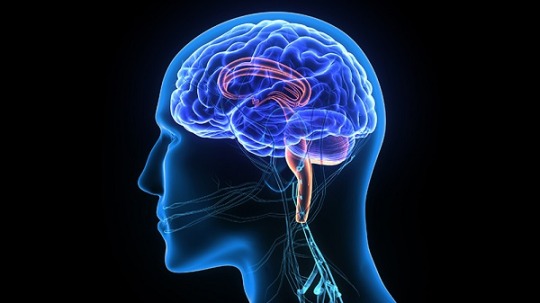
Different Types of Diagnostic Test For Neurological Issues
Electromyography (EMG): This test is done to check that the muscles within the body are responding correctly to the nerve signals.
MRI: Magnetic Resonance Imaging uses radio waves, and it is used to diagnose a variety of conditions from torn ligaments to tumors and other nerve disorders.
CT Scan: It is used to diagnose disease or injury within the brain or spinal cord. It is also used for other body parts.
Nerve Conduction Velocity (NCV): This test is done to identify nerve damage with the help of electrode patches that are attached to your skin.
If you or anyone you know wants to get the diagnostic test done, then you don’t have to worry about anything at all because the Neuro Surgeon in Kandivali is here at your service. The success rate of neurologists is very high, which is the reason why they have become the top choice of people all around. They value the trust of the clients, which is the reason why they have become the top choice of people all around who wants to get themselves tested for neurological issues.
About Wins Hospital
Wins Hospital is one of the leading names in the city because it is offering everyone with excellent quality neurological issues. The team of doctors who are associated with the hospital always do everything according to the need of an hour and assure that proper medical standards are followed. It is a promise that you will get all the required medical assistance related to neurological issues right under one roof. So, what are you waiting for? Reach out to them today, and they will provide you with the required treatment as per your overall condition. It is a promise that you will get all the required neurological treatment from the hospital.
Source: https://medium.com/@winshospital01/different-types-of-diagnostic-tests-used-for-identifying-neurological-issues-28f9df4916b0
0 notes
Text
0 notes
Text
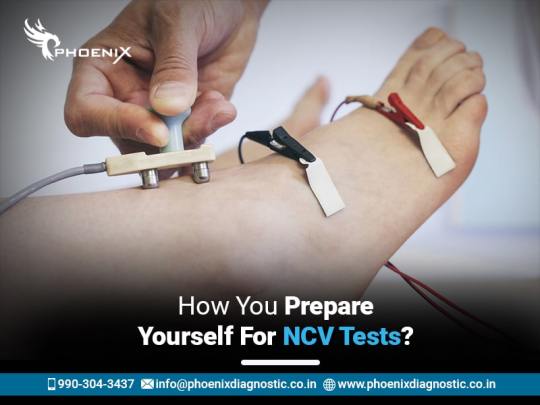
A person requires NCV tests to identify nerve damage. The full form of NCV is the nerve conduction velocity test. It basically measures how fast an electrical impulse moves through your nerve. Through this test, one can get to know if they have any severe nerve issues like Guillain-Barré syndrome, Carpal tunnel syndrome, Herniated disk disease or any kind of static nerve problem. In order to know this firstly you should get a proper test result. If you are looking For the Best Diagnostic Center in Kolkata then you can come to Phoneix Diagnostic Center which is the Best Diagnostic Center one could loudly speak off. We perform all types of diagnosis with utmost care.
#Diagnostic Center#Best Diagnostic Center#Best Diagnostic Center in Kolkata#Palta#Badamtala#Ichapur#Kalitala
0 notes
Text
Understanding the Benefits of EMG and NCV Testing
Electromyography (EMG) and nerve conduction velocity (NCV) testing are two important medical diagnostic tests used to assess muscle and nerve function.
https://www.slideserve.com/Salubritas/understanding-the-benefits-of-emg-and-ncv-testing
0 notes
Text
NCV Test Centre in Delhi | MRI and Imaging Centre in Delhi
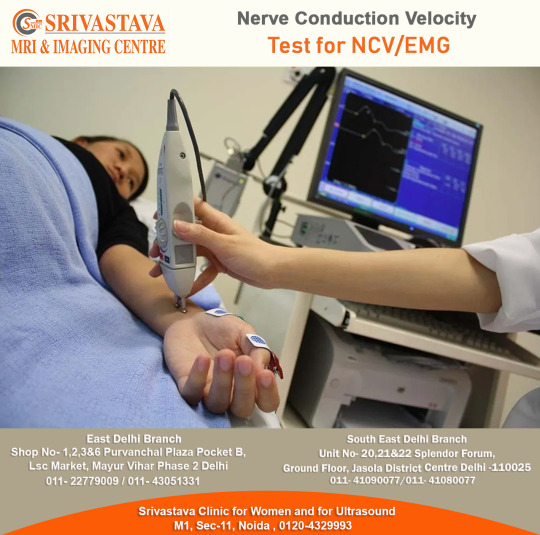
NCV Test Centre in Delhi, Nerve Conductivity Velocity (NCV) is a diagnostic process that is used to diagnose nerve damage and dysfunction. It is the procedure to evaluate how quickly electrical signals move through peripheral nerves and also check whether the nerve has been damaged or not. This test is also known as Nerve Conductivity Study (NCS).
#NCV Test Centre in Delhi#MRI Centre in Delhi#Best MRI Centre in Delhi#Srivastava MRI and Imaging Centre
0 notes
Text
Dr. Amit Shah: Your Expert Neurologist in Borivali
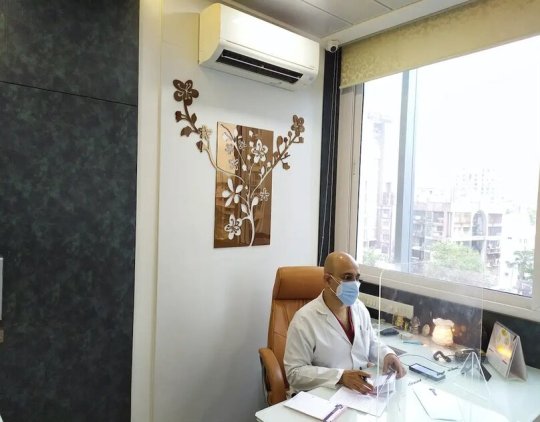
Are you looking for a top-notch neurologist in Borivali, Mumbai? Look no further than Dr. Amit Shah's Neurology Clinic in Borivali West! Dr. Amit Shah is a renowned specialist in neurology, offering advanced diagnostic facilities and expert care for a wide range of neurological conditions. Let's delve into what makes Dr. Amit Shah's clinic a go-to destination for all your neurological needs.
What Makes Dr. Amit Shah's Clinic Stand Out?
Dr. Amit Shah's Neurology Clinic in Borivali is a beacon of excellence in the field of neurology. Here's why you should consider visiting this state-of-the-art clinic:
Comprehensive Neurodiagnostic Facilities: From EEG to EMG/NCS, SSEP, VEP, FNC, BAER, and more, Dr. Amit Shah's clinic is equipped with cutting-edge neurodiagnostic tools to provide accurate diagnoses.
Expertise in Neurological Disorders: Dr. Amit Shah specializes in treating a wide array of neurological conditions, including migraines, epilepsy, multiple sclerosis, stroke, Parkinson's disease, and more.
Patient-Centric Care: Dr. Amit Shah and his team offer personalized care tailored to each patient's unique needs, ensuring a compassionate and effective treatment experience.
Top Conditions Treated by Dr. Amit Shah
Neurologists like Dr. Amit Shah play a crucial role in managing various neurological disorders. Here are some common conditions treated by neurologists:
Headaches: Whether it's migraines, cluster headaches, or tension headaches, Dr. Amit Shah can help alleviate your pain and improve your quality of life.
Seizures and Epilepsy: If you're dealing with seizures or epilepsy, Dr. Amit Shah can provide you with the necessary medication and support to manage these conditions effectively.
Stroke: Immediate intervention by a neurologist is crucial in the case of a stroke to minimize brain damage and facilitate recovery.
Dementia: For individuals experiencing memory loss and cognitive difficulties, Dr. Amit Shah offers treatments to alleviate symptoms and enhance quality of life.
Parkinson's Disease: Managing Parkinson's disease requires specialized care, and Dr. Amit Shah is well-equipped to provide the necessary support and medication.
Neurodiagnostic Tests Offered at Dr. Amit Shah's Clinic
Dr. Amit Shah's clinic in Borivali West offers a range of neurodiagnostic tests to accurately assess and diagnose neurological conditions. These tests include:
NCV: Nerve Conduction Velocity measurement
EEG: Electroencephalogram for measuring brain waves
EMG: Electromyography to assess muscle activity
Evoked Potentials: Measuring brain activity in response to sensory stimuli
Ultrasound Examinations: Evaluating blood vessels and brain structures
When to Consult Dr. Amit Shah
Knowing when to seek medical attention from a neurologist like Dr. Amit Shah is crucial for timely diagnosis and effective management of neurological conditions. Here's a detailed look at the symptoms that warrant a consultation with Dr. Amit Shah:
Changes in Behavior: Sudden or significant changes in behavior, mood swings, or personality alterations may indicate underlying neurological issues that require evaluation by a specialist like Dr. Amit Shah.
Memory Issues or Confusion: Persistent memory problems, confusion, difficulty concentrating, or cognitive decline should not be ignored, as they could be early signs of neurological disorders that need expert assessment and treatment.
Balance and Coordination Problems: If you experience frequent dizziness, loss of balance, coordination difficulties, or unexplained falls, it's essential to consult Dr. Amit Shah to rule out potential neurological causes such as vestibular disorders or cerebellar dysfunction.
Numbness, Weakness, or Movement Difficulties: Any unexplained numbness, weakness in limbs, muscle spasms, or difficulty with movement should prompt a visit to Dr. Amit Shah for a comprehensive neurological evaluation to identify the underlying cause.
Recurrent Severe Headaches: Chronic or severe headaches that disrupt daily activities, are accompanied by other symptoms like visual disturbances or nausea, or do not respond to over-the-counter medications warrant assessment by a neurologist like Dr. Amit Shah to determine the cause and provide appropriate treatment.
Vision Changes or Speech Difficulties: Sudden changes in vision, double vision, difficulty speaking or understanding speech, slurred speech, or other visual and speech abnormalities may signal neurological issues that require prompt attention from a specialist like Dr. Amit Shah.
Tremors or Uncontrollable Movements: Persistent tremors, involuntary movements, muscle stiffness, twitching, or jerking motions could be indicative of movement disorders like Parkinson's disease or essential tremors, necessitating evaluation and management by a neurologist.
Gait or Posture Alterations: Changes in walking pattern, balance problems while walking, frequent stumbling, dragging one foot while walking, or any alterations in posture should be evaluated by Dr. Amit Shah to assess for potential neurological conditions affecting motor function and coordination.
Don't ignore potential neurological symptoms; seek expert care from Dr. Amit Shah to ensure timely diagnosis and treatment.
To book aa consultation with Dr. Amit Shah- Neurologist in Borivali, visit Dr. Amit Shah’s Neurology Clinic or Contact us on 98195 61456, 85913 11154.
#neurologist in borivali#neurologist#neurologist in goregaon#dr. amit shah#neurologist in kandivali#best neurologist in mumbai#neurologist in malad#neurologist in mumbai#neurologist in andheri#neurologist in vasai
0 notes